The human drama of Korean family reunions
- Published
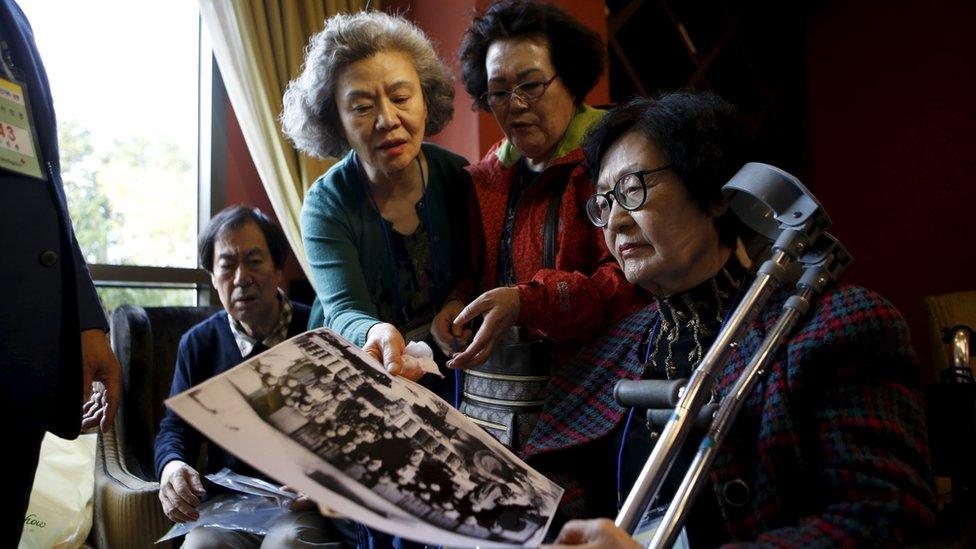
Relatives assemble on the south side of the border ahead of the reunion
It is hard to imagine a more bitter-sweet event. The reunion of Korean families who have not seen each other for six decades will be a tumultuous mix of emotions.
There will probably be both tears and laughter as old people divided from those they have not seen for most of their lifetimes get a brief and final meeting.
As Stephen Evans reports, thousands of North Koreans are buried in South Korea
More than 65,000 South Koreans were eligible for reunions with relatives in the North but only 100 were chosen. Of those hundred, 10 have since died or become too ill to travel.
The chosen, remaining few will go in a convoy of buses to the North Korean resort of Mount Kumgang, accompanied by their children and other family members.
There, they will have six two-hour meetings with their relatives from the North.
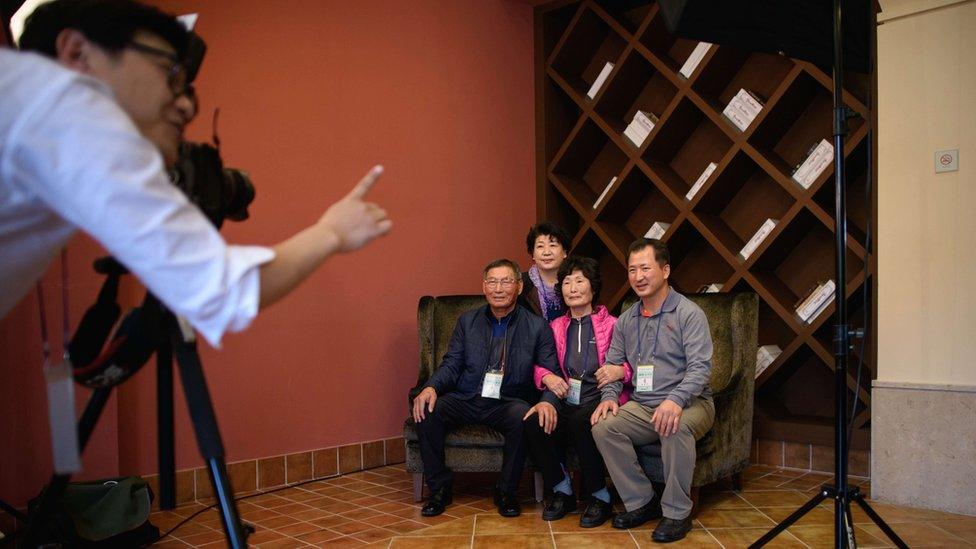
Family photos were taken ahead of the reunion to give to North Korean relatives as a memento
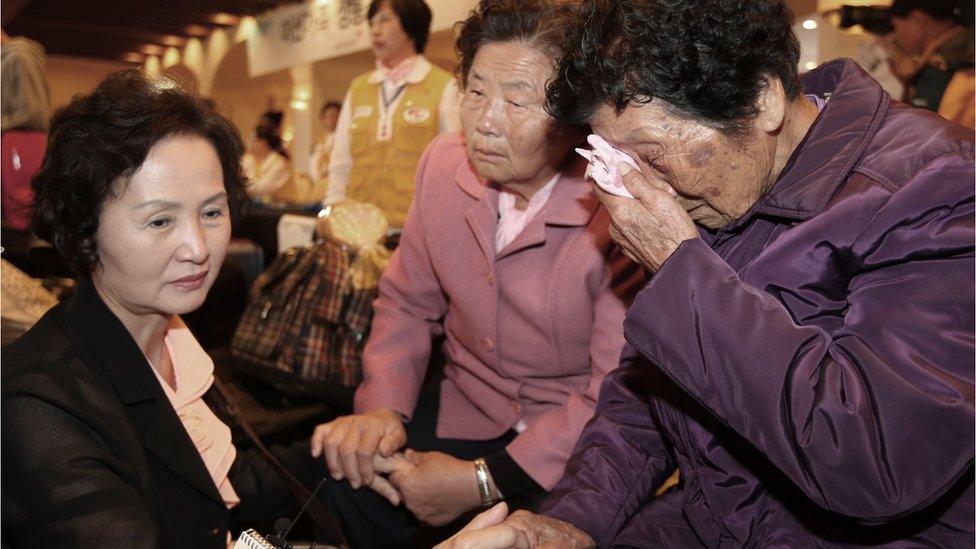
Emotions were running high even before the reunions started
The meetings will be spread over three days so the families will spend about 12 hours together, some of it with press and TV cameras recording the emotion, and some of it in private.
Because of the time that has elapsed, many are in their 80s and 90s. They are unlikely to have another meeting.
The families were split in the tumult of civil war, so many of those who ended up in the South have not even had photos or mementoes of those they left.
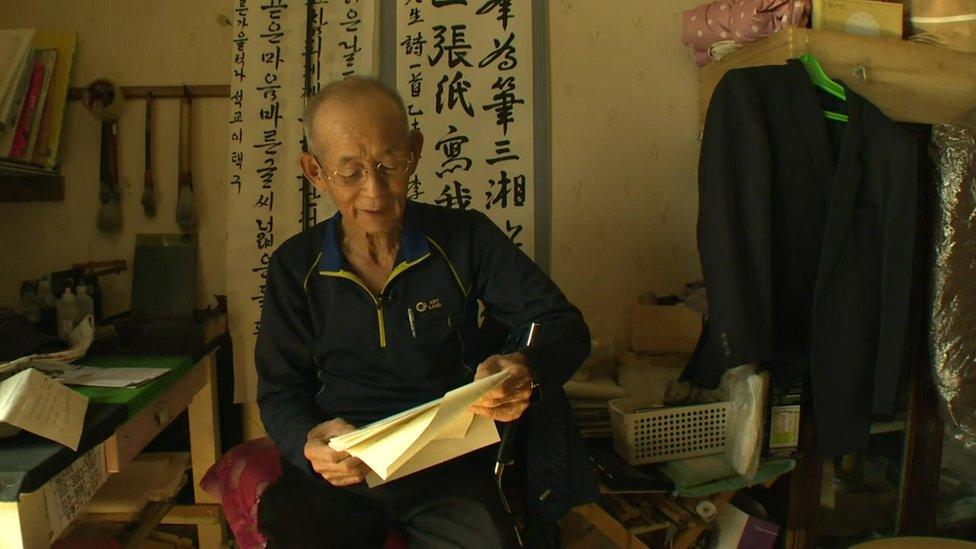
Lee Taek-gu wrote letters to his parents in the North that he was never able to send
Lee Taek-gu is 89 years old and he will meet his sister who is 20 years younger. He last saw her when she was a tiny girl and he a young man who got on a boat to flee south, thinking he would come back after the war.
Since then, he has been writing letters to his parents knowing he would never send them because there is no postal service between the two halves of Korea. He wrote them as therapy for his grief.
He told the BBC he would simply thank his sister for being alive. They would talk about their parents who are now dead. He has got his best jacket cleaned and spruced up for the occasion and bought a smart new hat.
There will be rules about what they can discuss. Family members from the South have been given a guide by the Red Cross, under whose auspices the meetings have been organised.
That guide advises people to avoid politics. They should take gifts - money, perhaps, inexpensive watches, winter clothes, toothpaste, sugar, vitamins.

The Red Cross in Korea organises the family reunions
After the last reunion a year ago, some South Koreans complained that they had been harangued about politics by their relatives in the North.
But you can't avoid politics with these reunions, which started after a summit meeting between the leaderships of the two countries in 2000. Since then, they have not been regular, depending on the state of relations between Pyongyang and Seoul, with late cancellations at what North Korea perceives to be a slight.
With relations in a dire state over the last five years, there have only been two reunions. All told, just under 19,000 Koreans have been reunited face-to-face, and 3,750 others on video links.
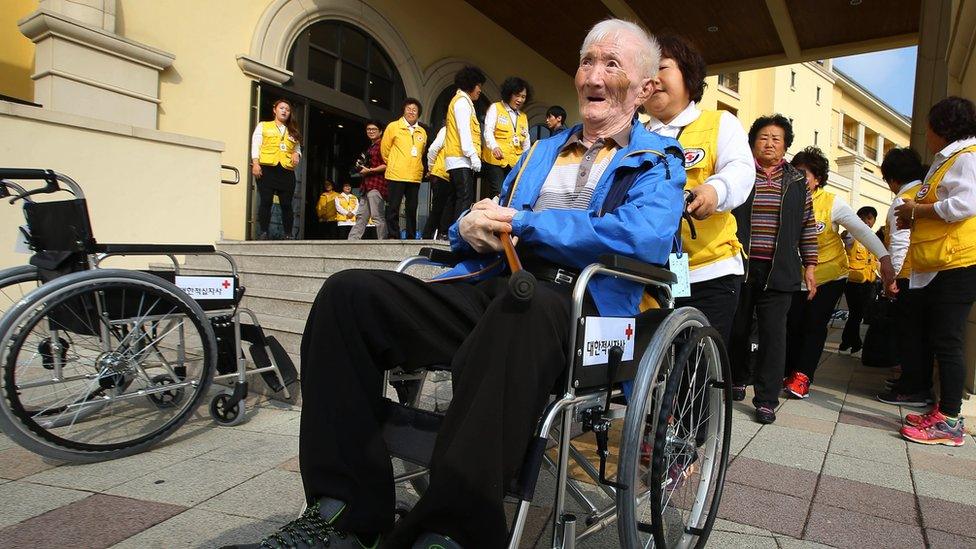
Many of those taking part in the reunion are very elderly
Whatever the politics, you can't doubt the personal, human drama involved.
Choi Hyeong-jin, who is 95, said that he still feels guilty because he left his wife and two daughters in the North in 1951. Because the front-line moved north and south like a yo-yo, who ended up where was a lottery. Mr Choi will meet one of his daughters this week. She was two when he last saw her and is 64 now.
"I am not sure if I will even be able to recognise her", he said. "I don't even remember how she looked as a baby".
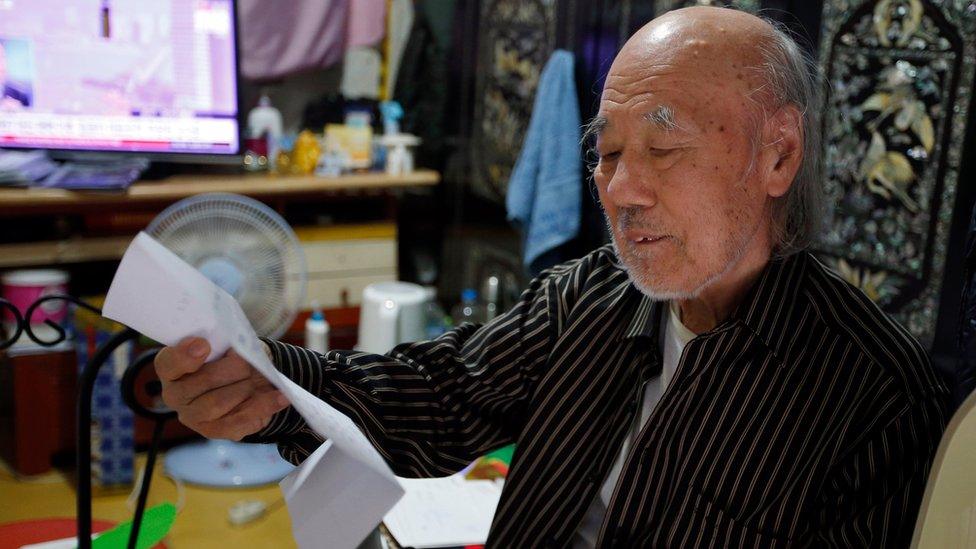
Kim Wu-jong is looking forward to seeing his sister for the first time in over 60 years
Another person who will meet long-lost family is 87-year-old Kim Wu-jong, who lives alone in a small, run-down home in Seoul. He is poor and partially paralysed.
But he is overjoyed at the prospect of seeing his younger sister whom he calls "the flower and princess of my family". They have not seen met since the Korean War ended in 1953.
"I cannot describe how happy I am," he said. "It's better than winning the lottery."
- Published9 October 2015
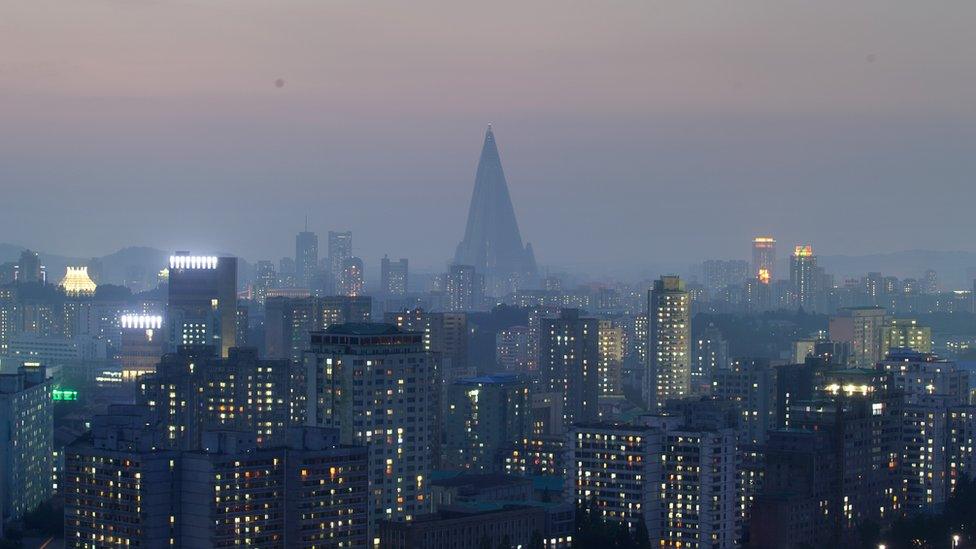
- Published9 October 2015
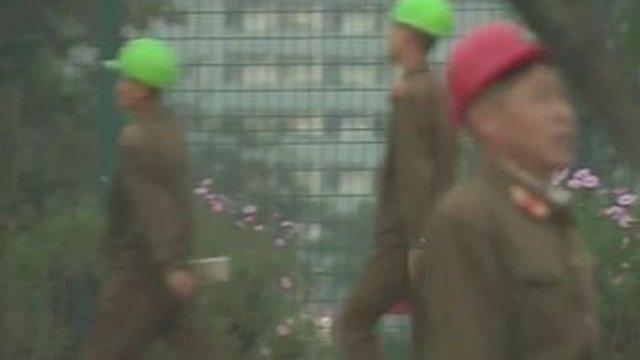
- Published9 October 2015
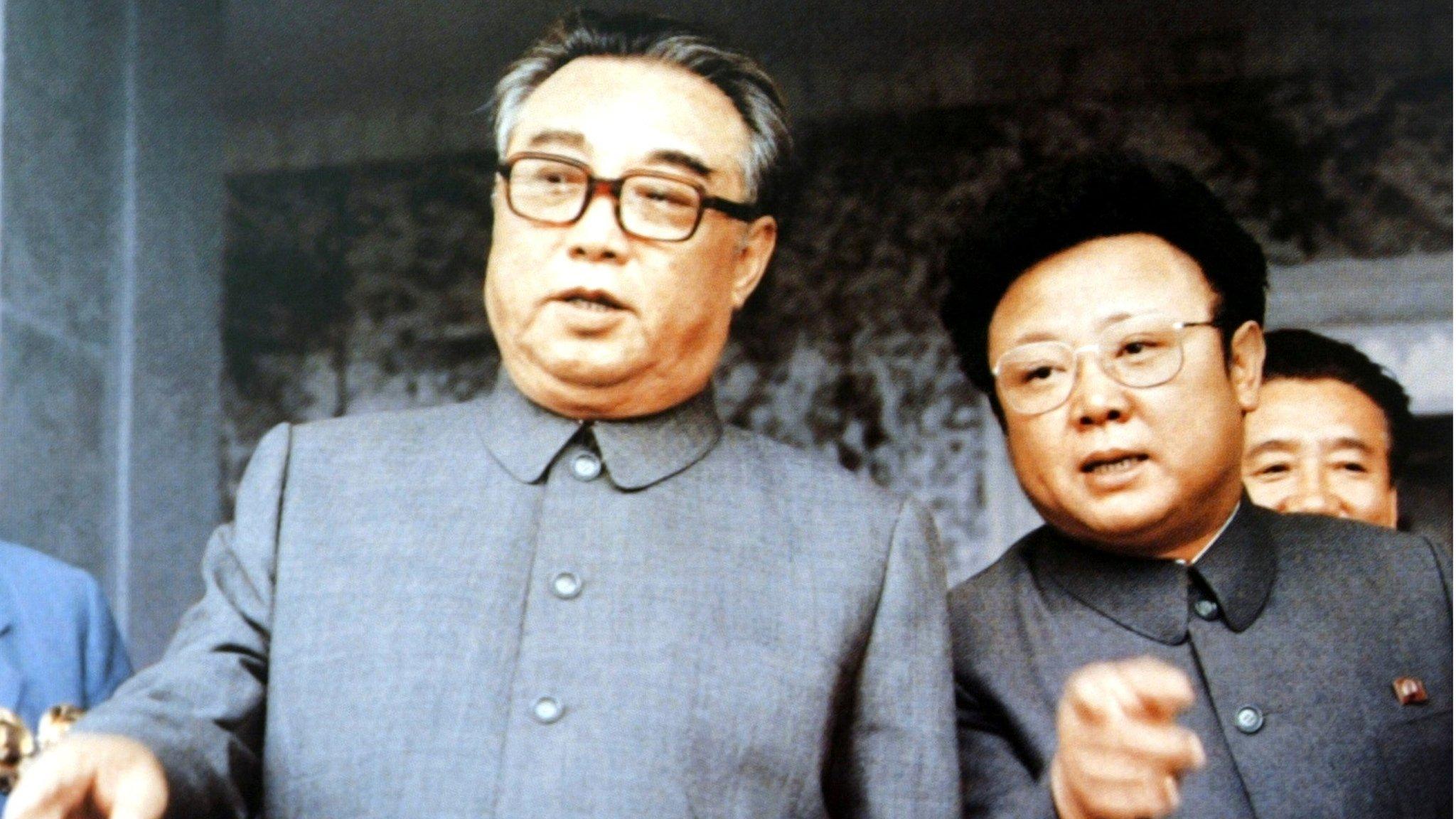
- Published12 October 2015
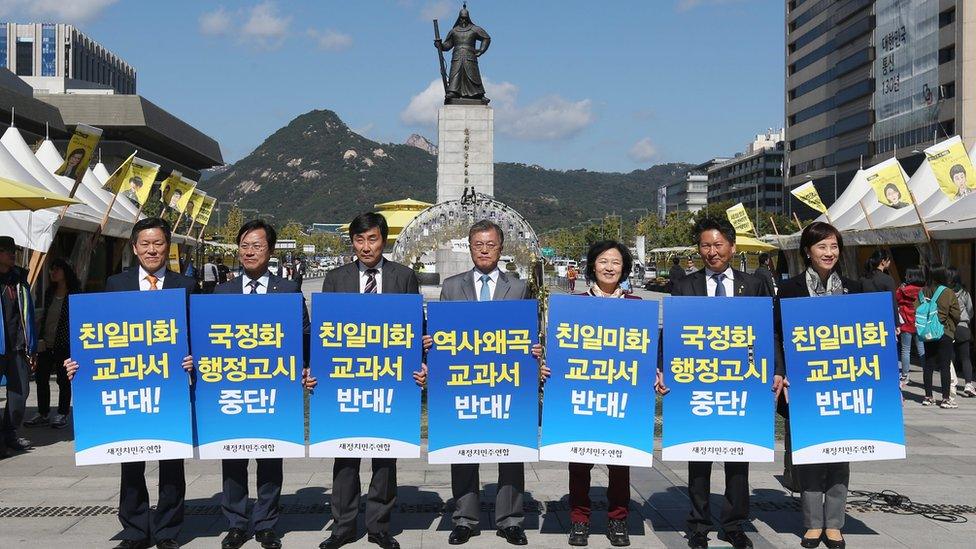
- Published15 September 2015
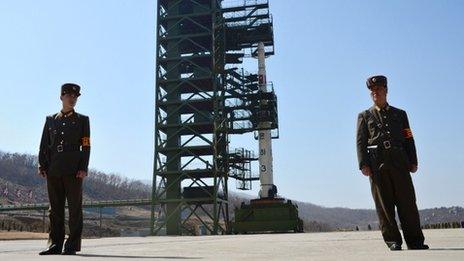
- Published3 January
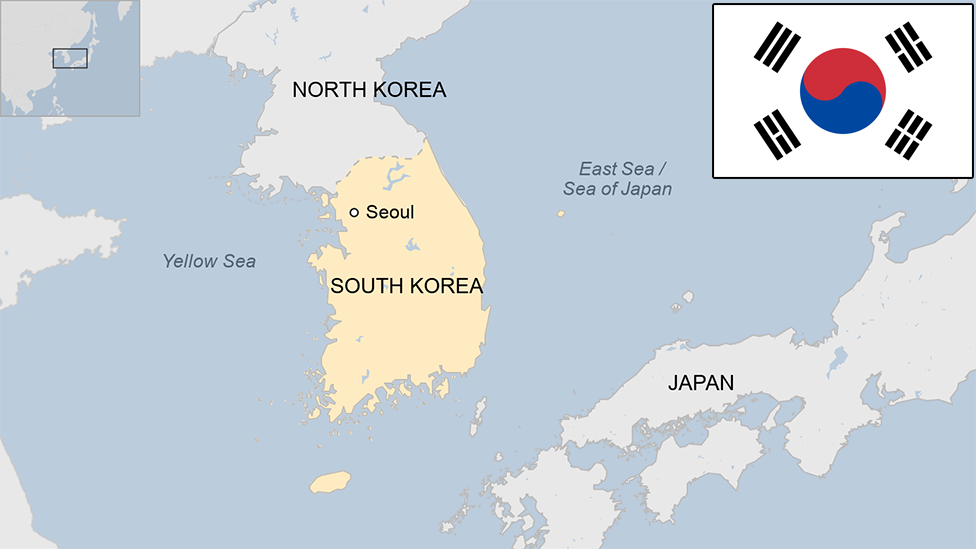
- Published6 May 2016